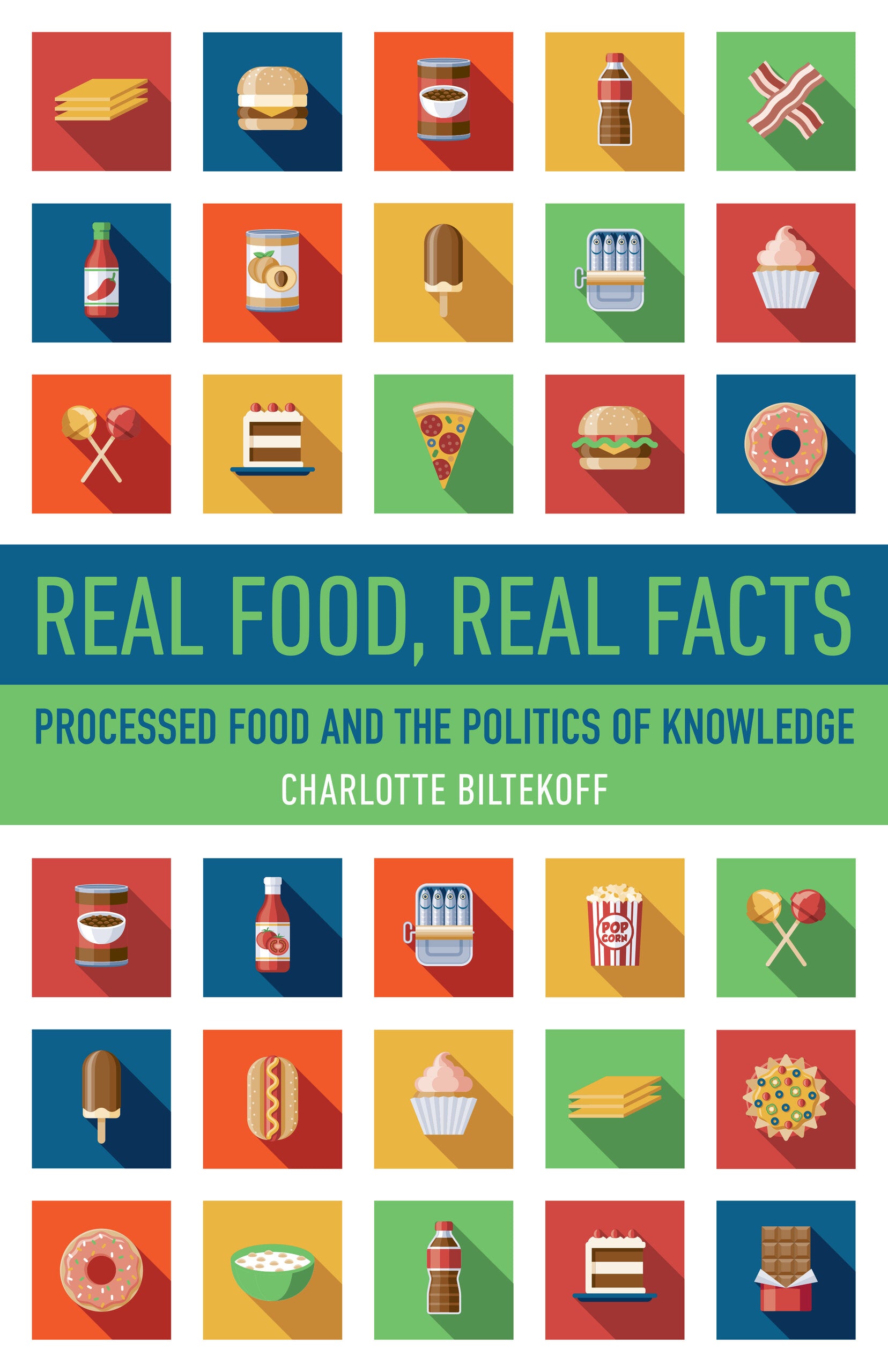

Charlotte Biltekoff Author Talk • Real Food, Real Facts: Processed Food and the Politics of Knowledge
A note about our in-store events:
We offer first come, first served seating in our shop. There will be overflow room outside if needed and the author will be mic'd. Everyone is welcome to attend.
You can pre-order a copy below for pick-up at the event or purchase copies on-site.
Charlotte Biltekoff, Ph.D., is Professor of American Studies and Food Science & Technology and Darrel Corti Endowed Professor in Food, Wine and Culture at the University of California, Davis, where she builds bridges between scientific and cultural approaches to questions about food and health. Her expertise centers on understanding where ideas about “good” and “bad” food come from and the social and cultural role they play. Recent work explores the political stakes of how experts in the food system understand the role of the public and communicate about science, technology, and innovation. Her research is interdisciplinary, and she frequently collaborates and communicates across disciplinary differences.
Elizabeth McQueen is a Postdoctoral Fellow at UC Davis with the Mellon Foundation Sawyer Seminar, Thinking Food at the Intersections. Her writing is found in Gastronomica, Global Performance Studies, Theater Journal, and she hosts the podcast Esculent. She holds a Ph.D. in Theater and Performance Studies and a certificate in Food Studies from UCLA.
Real Food, Real Facts — In recent decades, many members of the public have come to see processed food as a problem that needs to be solved by eating "real" food and reforming the food system. But for many food industry professionals, the problem is not processed food or the food system itself, but misperceptions and irrational fears caused by the public's lack of scientific understanding. In her highly original book, Charlotte Biltekoff explores the role that science and scientific authority play in food industry responses to consumer concerns about what we eat and how it is made. As Biltekoff documents, industry efforts to correct public misperceptions through science-based education have consistently misunderstood the public's concerns, which she argues are an expression of politics. This has entrenched "food scientism" in public discourse and seeded a form of antipolitics, with broad consequences. Real Food, Real Facts offers lessons that extend well beyond food choice and will appeal to readers interested in how everyday people come to accept or reject scientific authority in matters of personal health and well-being.
Order The Book
available for pick-up at the event or shipping worldwide

